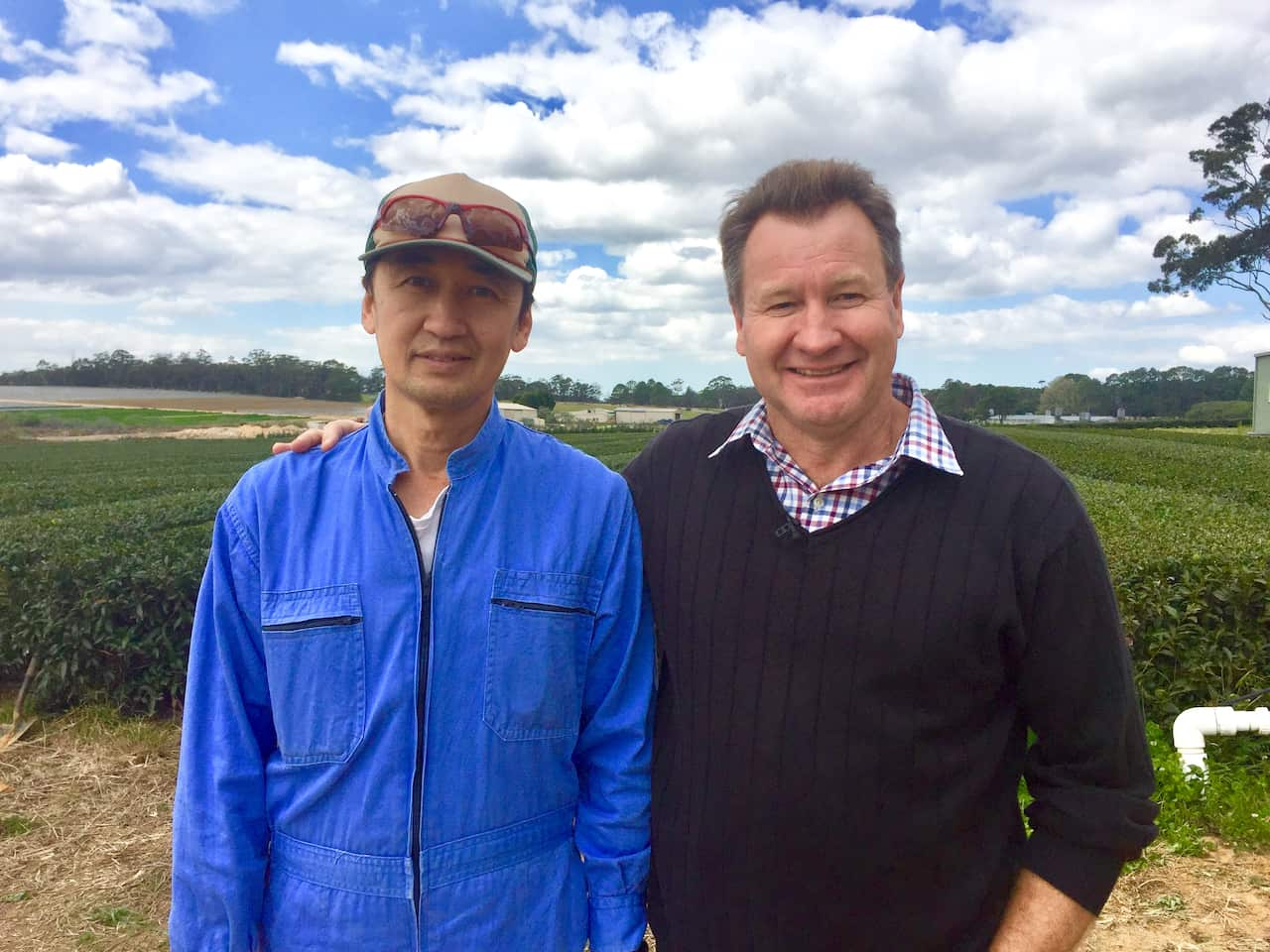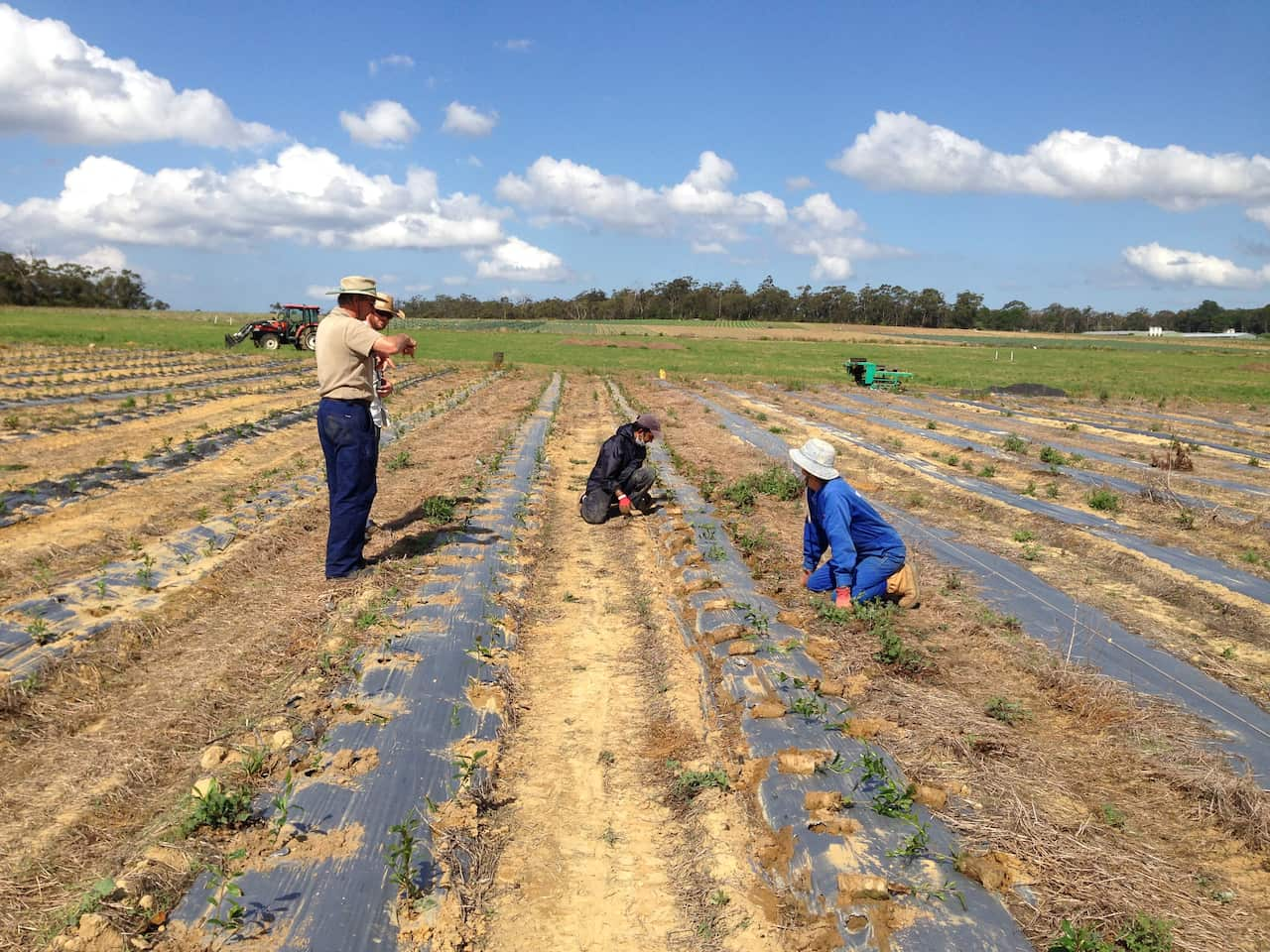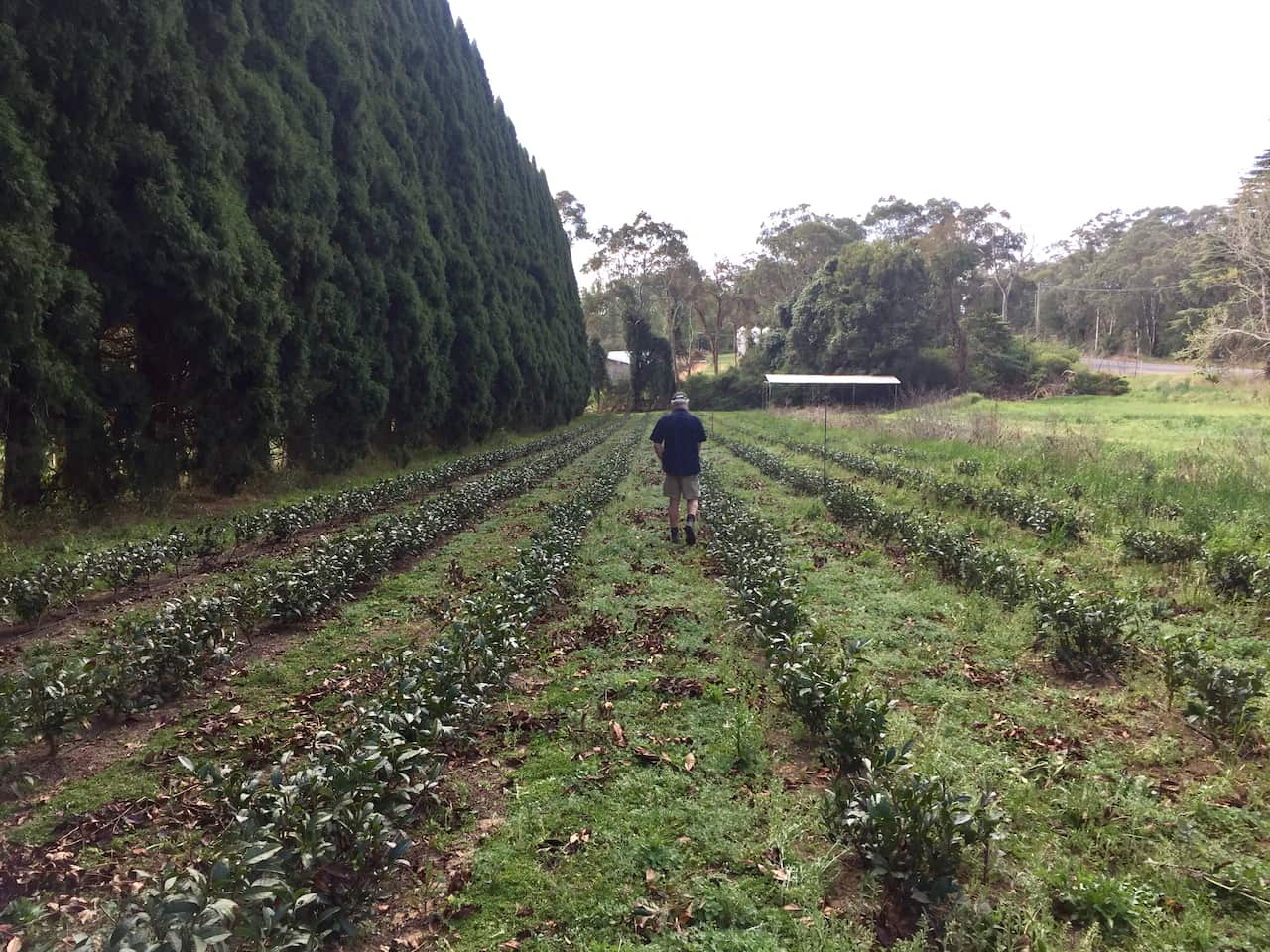High in the hills of Mangrove Mountain on the New South Wales Central Coast, Akio Onozawa is tending to one of Australia’s first green tea farms, using age-old techniques from his hometown of Shizuoka in Japan.
"For the Japanese, growing tea is a culture, so it's very important to preserve and pass it onto the next generation," he tells SBS News.
The all-important “ichiban cha" - the first few leaves of each spring flush - are only a few weeks from sprouting, and Mr Onozawa explains it is those leaves that are key to making premium green tea.

The rows of lush green at the Mangrove Mountain farm are a welcome sight for the local farming community which has struggled for decades.
First, international competition crippled the community's stone-fruit and citrus industry. Then, the Newcastle bird flu destroyed the poultry market.
"Over the course of time, the competitive advantages that this area had have disappeared or been reduced through international trade, or other areas that could produce these crops more effectively, and cheaper prices," said farmer John Robb, founder of the recently formed Australian Green Tea Cooperative.
"So it's put a big strain on this region, from an agricultural point of view, over the last 50 or 60 years."
In 2004, the area caught the attention of the Japanese tea company Kunitaro, which had been searching for new land to meet a growing demand for green tea in its home country. Mangrove Mountain had the ideal climate, and the first tea leaves were planted for a pilot program.
Thriving business
Fourteen years on, the farm is no longer just an experiment but a thriving business and a new source of pride for the community. The owners have expanded the farm to double the size of the original plantation.
The Australian farm is tapping into a lucrative counter-seasonal market for Japanese drinkers and coincides with the lucrative gift-giving period of Christmas and New Year.
"Because we're southern-hemisphere production, we're out of sync with the Japanese production cycle, so they can have fresh tea at two different times of the year," Mr Robb said.
We're out of sync with the Japanese production cycle, so they can have fresh tea at two different times of the year.

The organic farm has been able to withstand the current drought as it draws on water from the Sydney Basin.
"I was really surprised that you can't grow anything without it," Mr Onozawa said. "In Japan, we have lots of rain, so we don't use this kind of thing at all."
The five-hectare farm produces up to 20 tonnes of tea a year. Once the leaves have been harvested, they go through a small-scale processing facility before being shipped to Japan for further processing and packaging.
Growing interest
Down the road from the Kunitaro farm, third-generation farmer Andrew Slade said he decided to diversify his avocado and chicken farm and planted green tea seedlings two years ago.
"I was watching what they were doing at their farm at Mangrove Mountain, and then I've always liked tea ... it just fascinated me," he said.
"Nobody really was getting into it, so I took the plunge."

There are now 20 green-tea farms across the country, in Tasmania, Victoria, Western Australia and New South Wales.
Although Australia produces less than one per cent of the tea consumed worldwide, the federal government believes it is an industry worth investing in. The government recently provided a $100,000 grant to the Australian Green Tea Cooperative to promote the burgeoning industry.
Frank Sammut, a board member of Regional Development Australia Central Coast, says he believes green tea could be a major export crop for Australian farmers one day:
“China's the biggest tea exporter, and we'll be competing with them, but I think where we have to look at our point of difference is around that clean, green food production which Australia's known for."

